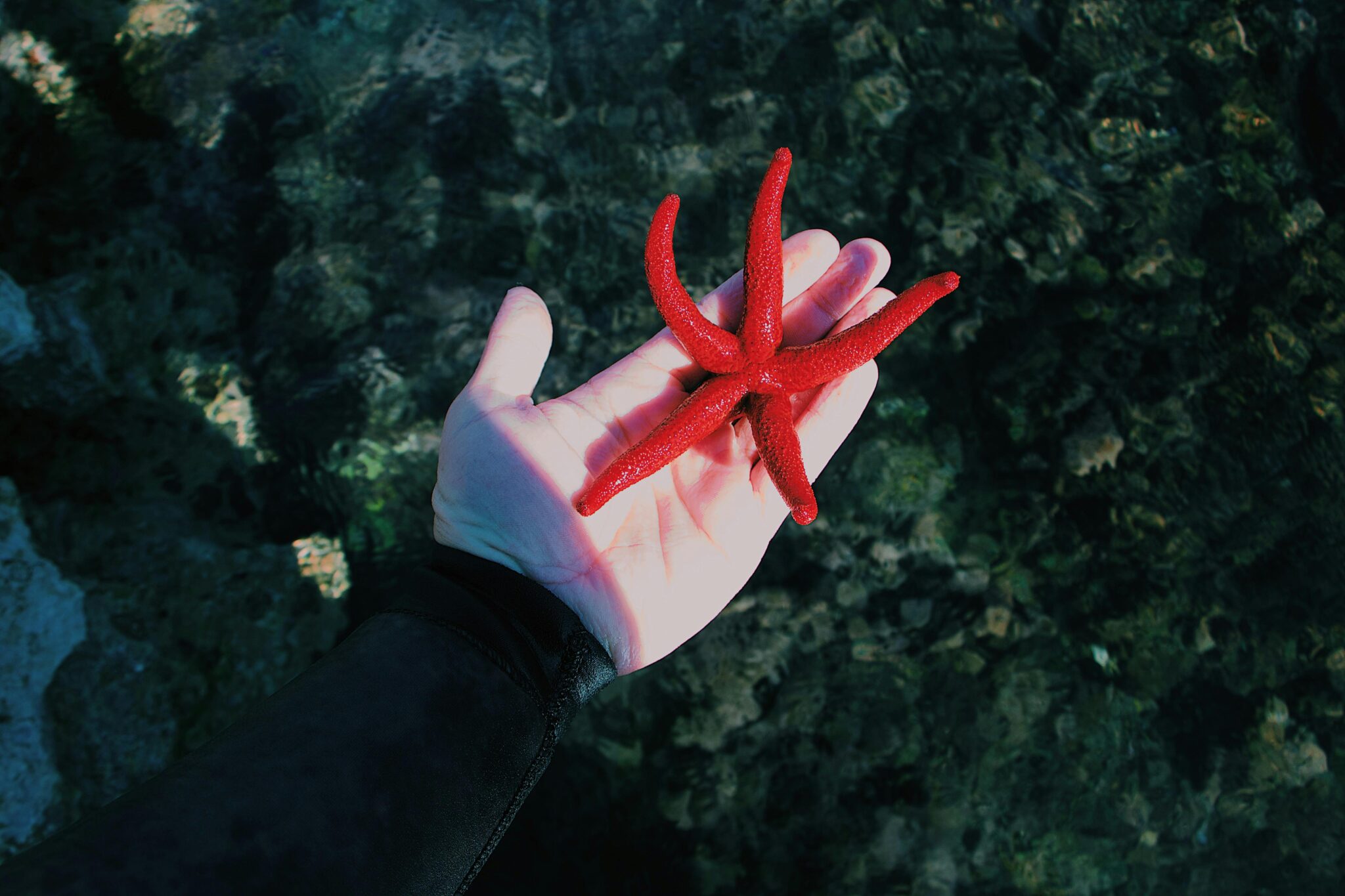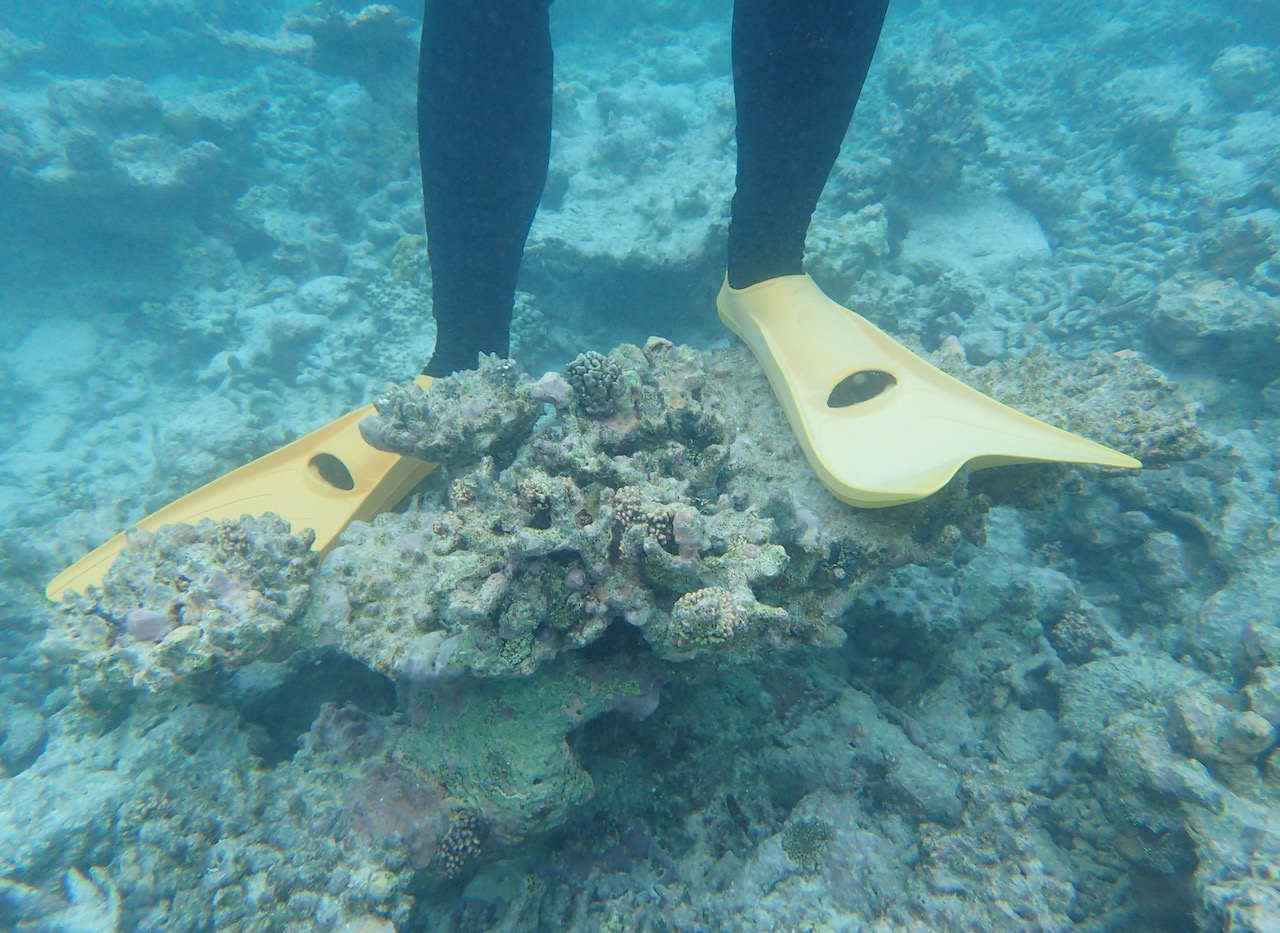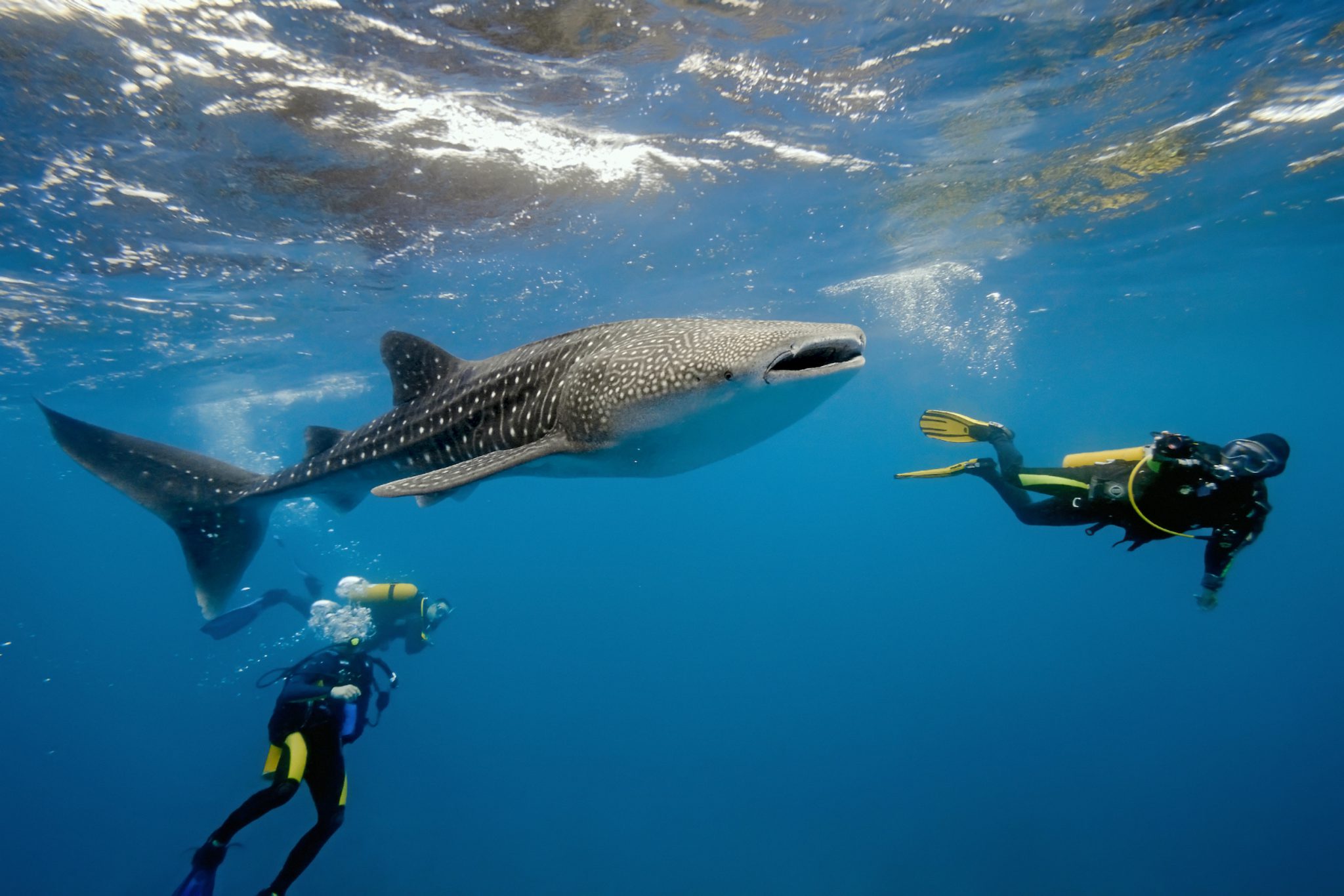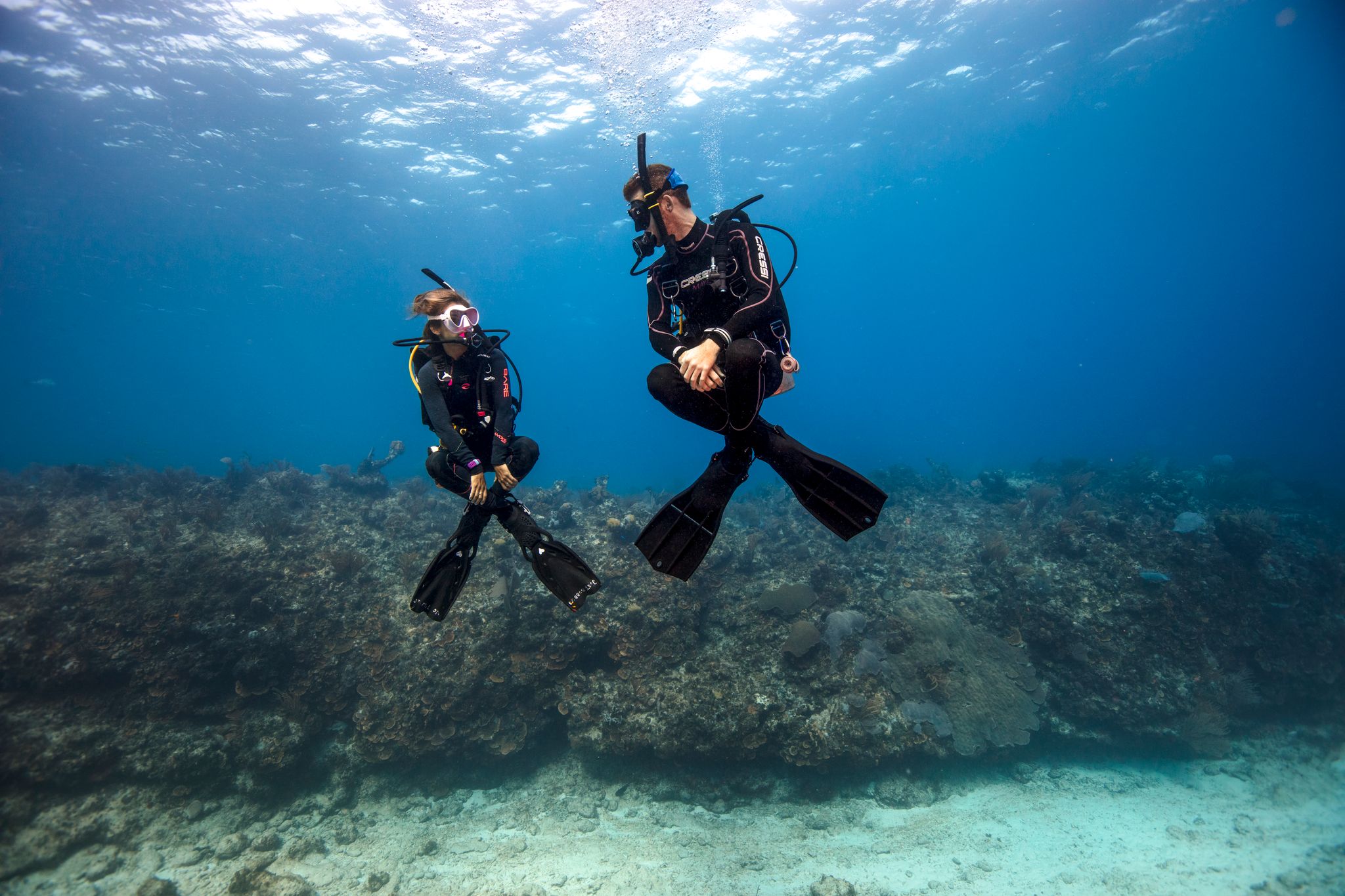Scuba diving is a social activity. From the first time you dip your toes into the underwater world, you learn from an instructor, explore with a buddy, and share experiences with fellow divers on your courses and dive trips. We all learn from each other, and the behavior of one diver can easily influence others, for better or worse. That’s why it’s important to know how to talk to other divers about bad habits or behavior that could harm the delicate marine ecosystem.

As divers, we depend on a healthy ocean to continue exploring the underwater world for many years. However, our actions can be very harmful to the fragile marine environment. Without realizing it, we can damage aquatic life, destroy coral reefs, pollute the water, and spoil delicate ecosystems.
These are some of the most common bad habits among divers and the impact they can have:
Touching marine life – Whether picking up a sea star for a photo or “petting” a fish, your touch can harm delicate marine life. It can distress them and destroy the protective layer on their skin, making them vulnerable to disease or even result in death. And taking aquatic creatures out of the water, even for a short time, can suffocate them. Chasing or harassing animals – Marine creatures are sensitive to stress. Chasing a whale shark for a photo or harassing a turtle as it’s eating causes them distress. It interrupts their natural behavior and can cause them to flee the area or abandon their feeding or breeding grounds. Kicking up sand – This action can smother corals and bottom-dwelling critters, damaging their homes and creating a cloud of sediment that can harm filter-feeding animals. Feeding marine animals – Animals can become reliant on human food, disturbing their natural behavior and creating potential health issues. Littering – Leaving trash, lost equipment, or fishing gear in the ocean or the shoreline contributes to pollution and can injure ocean creatures if they mistake it for food or get tangled in it. Bad buoyancy control and finning techniques – Coral is alive and very fragile, taking years to grow back. Divers who are not properly weighted or do not have good buoyancy control can easily damage coral reefs by accidentally kicking or breaking off pieces if their gauges and hoses are not tucked in. Taking shells, corals, or stones – Taking souvenirs from the ocean may seem harmless (after all, it’s just one!), but it adds up quickly when all divers do the same. Even when they seem empty, shells and coral fragments are still home to other marine life and have a role to play in the ecosystem.Aside from the environmental impact, bad diving habits can also put divers at risk. Divers who don’t follow dive plans, exceed depth and time limits, don’t keep track of air consumption, dive beyond their training, or leave their buddy behind are putting themselves and others in danger.

It can be uncomfortable to approach someone about their bad habits, especially if you don’t know them well. However, as fellow divers, we are responsible for looking out for each other and the environment. We are all stewards of the ocean, and it’s up to us all to protect it.
When you see something, say something.
If you stand by and allow bad habits to go unaddressed, it’s not just that one diver who will continue causing harm. Other divers who observe this behavior may assume it’s acceptable, and the problem will continue to spread.
You may be able to correct certain behaviors underwater. For example, you can point to the coral to show a diver that they are kicking it and signal to inflate their BCD, but often, you will need to have a conversation after the dive, especially if you want to address bigger or repeated issues.
Speaking up is crucial to create a culture of safe diving where we can all learn from each other, prevent accidents, and have responsible marine interactions.

Talking to other divers about their bad habits can be tricky. It’s essential to communicate with empathy and understanding. Often, these behaviors result from ignorance rather than malicious intent.
By approaching the conversation from a place of respect and education rather than judgment, you have a better chance of getting through to the other diver and positively influencing their behavior.
Here are some tips for talking to other divers about bad habits:
Choose the right time and place – Address the issue privately, away from others, to avoid embarrassing the other person. Choose a calm, quiet time to focus on the conversation without distractions or time pressure. Start with a compliment – Acknowledge something positive about their diving skills or experience. This keeps the tone positive and shows that you appreciate them as divers. Be specific – Instead of making general statements like “you’re a bad diver,” be specific. For example, “I noticed you touched the corals on our dive.” Explain why it matters – Most divers care about the ocean but don’t realize the impact of their actions. By explaining the consequences of their behavior, you can help them understand why it’s essential to change their bad habits. Use data or personal experiences to reinforce your message. Offer solutions – Instead of just pointing out the problem, offer alternative behaviors to help mitigate the issue. For example, give them tips for improving their buoyancy or suggest they take the Peak Performance Buoyancy course. Be direct but respectful – When discussing bad habits, it’s important to be direct and clear to make sure they understand the impact of their actions. However, it’s equally important to be kind and respectful. Avoid sounding confrontational or judgmental. Everyone makes mistakes; your goal is to educate and improve, not to shame or belittle.It’s also good to inform the dive guide about any bad habits you observe. They can enforce guidelines and address the issue during the pre-dive briefing or by implementing consequences for repeat offenders.

Ultimately, the best way to address bad diving habits is to lead by example and role-model good diving practices. Be a responsible diver, follow proper diving etiquette, and respect marine life and the environment. By doing so, you are not only protecting the ocean but also setting a good example for other divers.
You can also continue educating yourself on responsible diving practices through courses like the Green Fins Diver e-Course or the PADI AWARE® Specialty. These programs provide valuable knowledge and show your commitment to being a responsible diver and protecting the marine environment.
Sign Up For The PADI AWARE Course
The next time you see a fellow diver engaging in harmful or reckless behaviors, don’t hesitate to speak up. We can all make a difference in creating a safer, more conscious diving community and preserving the ocean for generations to come.
Share This